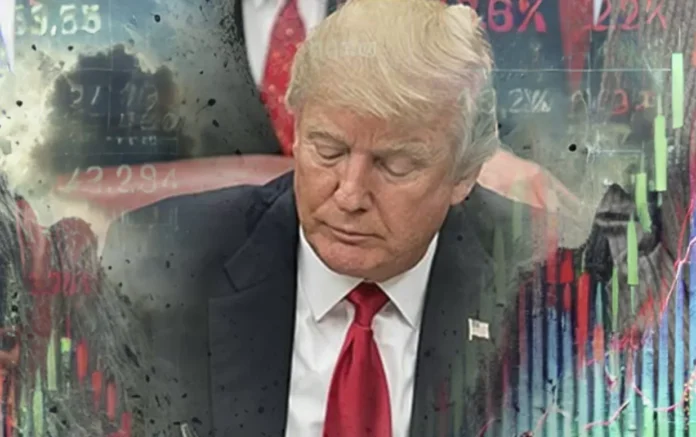In a recent article published by The Gateway Pundit, former CIA advisor Jim Rickards has made a bold claim that President Donald Trump is intentionally destabilizing the economy as part of a larger strategy to confront deeper issues. This provocative analysis has sparked a heated debate among economists and political analysts, with some questioning the validity of Rickards’ assertions while others see it as a potential game-changer in the financial world.
According to Rickards, President Trump’s actions, such as imposing tariffs on China and withdrawing from international agreements, are not just impulsive decisions but part of a calculated plan to shake up the economy. He argues that Trump is using these tactics to address fundamental issues such as the growing trade deficit, national debt, and the dominance of the US dollar in the global economy.
This strategy, if successful, could have a significant impact on the financial future of the United States and the world at large. It could potentially reshape the global economic landscape and create new opportunities for growth and prosperity.
One of the key points that Rickards makes is that the current economic system is unsustainable and needs to be addressed. He believes that President Trump is deliberately creating chaos in the market to force a much-needed correction. By destabilizing the economy, Trump is hoping to address issues that have been ignored for too long, such as the trade deficit and the national debt.
This approach may seem risky, but Rickards argues that it is a necessary step towards a stronger and more stable economy in the long run. He believes that the current economic system is built on a foundation of debt and that a major correction is inevitable. By taking bold and decisive actions, Trump is attempting to control the timing and magnitude of this correction, rather than let it happen on its own.
Furthermore, Rickards suggests that Trump’s actions are also a way to confront the dominance of the US dollar in the global economy. The dollar has been the world’s reserve currency for decades, giving the US a significant advantage in international trade. However, this has also led to a massive trade deficit and a growing national debt. By destabilizing the economy, Trump is challenging the status quo and pushing for a more balanced and fair global trade system.
While these claims may seem controversial, they do shed light on the potential motives behind Trump’s economic policies. It is no secret that the President has always been a vocal critic of the current economic system and has promised to shake things up. And with the recent stock market volatility and the ongoing trade wars, it is clear that he is following through on his promises.
But what does this mean for the average American? According to Rickards, it could mean short-term pain but long-term gain. The initial shock to the market may cause some temporary setbacks, but in the long run, it could lead to a more stable and sustainable economy. Rickards also believes that this strategy could create new opportunities for growth and innovation, as the US looks to strengthen its position in the global market.
In conclusion, Jim Rickards’ analysis raises some thought-provoking questions about the current state of the economy and the motives behind Trump’s actions. While there may be differing opinions on the validity of his claims, one thing is certain – the economy is in a state of flux, and it is up to the government to take bold and decisive actions to address the underlying issues. Whether one agrees with Trump’s approach or not, it is clear that he is not shying away from making tough decisions in the hopes of creating a stronger and more stable economy for the future.


